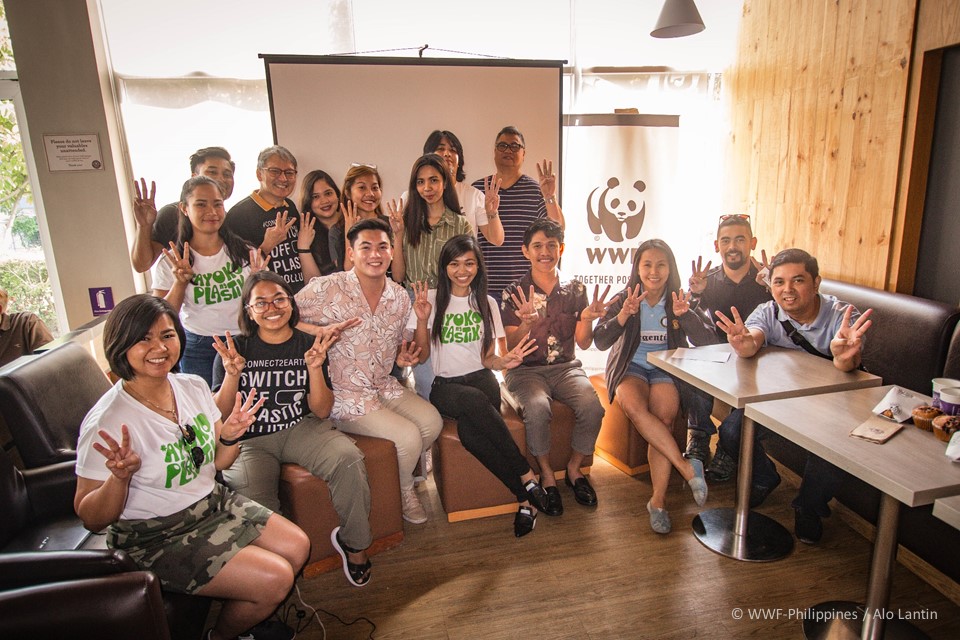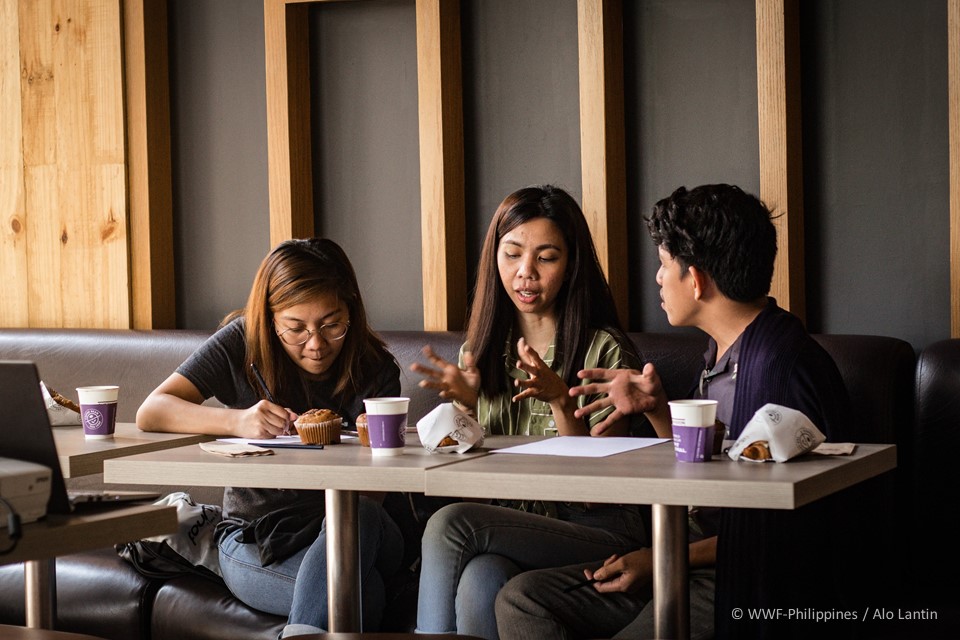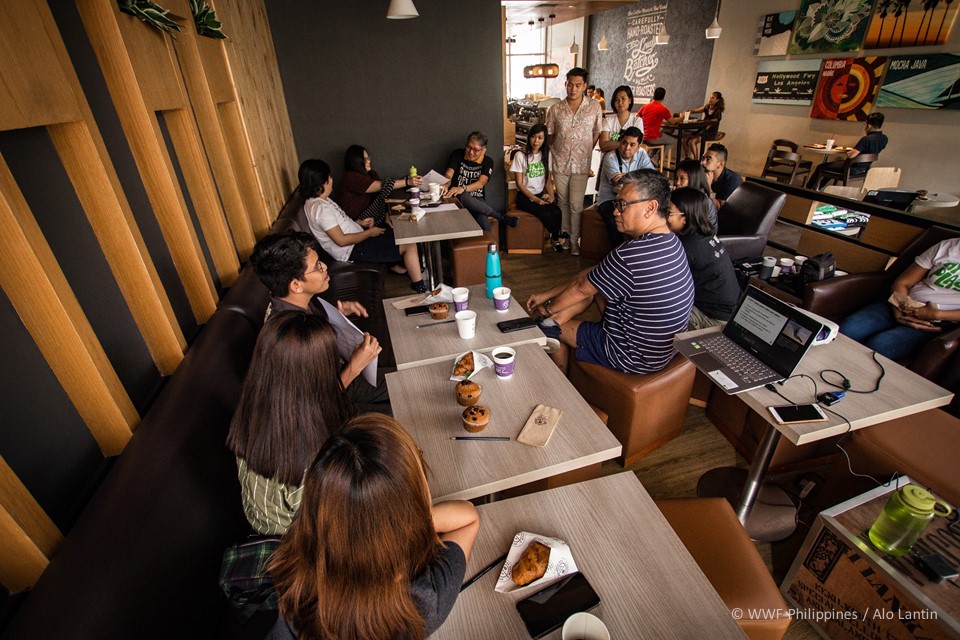WWF-Philippines, Supporters Discuss Ideas for a Plastic-Free Philippines at the Latest Conservation Conversation
July 2019

Staff from the World Wide Fund for Nature (WWF) Philippines pose with participants and supporters at the latest Conservation Conversation. An avenue for discussing the most pressing environmental issues faced by our country, this Conservation Conversation focused on the plastics issue and WWF-Philippines’ No Plastics in Nature Initiative. Photograph © Alo Lantin / WWF-Philippines
On the 13th of July, 2019, staff and supporters of the World Wide Fund for Nature (WWF) Philippines came together for the latest installment of Conservation Conversation, which is part of the organization’s efforts to engage and educate supporters on the most current and pressing environmental issues and how the organization is working to address them.
Held almost a year after the last Conservation Conversation that focused on watershed management and water security, this session made it possible for eager supporters to learn about the WWF Network’s No Plastics in Nature Initiative and discuss the ideas they have for bringing about a plastic-free future for the Philippines at Coffee Bean and Tea Leaf, UP Technohub. Coffee Bean and Tea Leaf is the official venue partner of WWF-Philippines' Conservation Conversation events.

Participants discuss ideas for bringing about a plastic-free future for the Philippines. Photograph © Alo Lantin / WWF-Philippines
The No Plastics in Nature Initiative is the WWF Network’s response to the increasing threat posed by plastic pollution. The WWF Network estimates that each year, 8 trillion pieces of plastic enter the oceans and that as much as 100,000 microplastics enter our bodies, the equivalent of consuming a credit card a week. These figures were presented by WWF-Philippines National Coordinator for Plastics Czarina Constantino as she talked about the No Plastics in Nature Initiative, highlighting the severity of the plastics problem and its impact on the world. The Philippines alone has been recognized as the world’s third largest plastic polluter of oceans – a fact which has spurred WWF-Philippines’ #AyokoNgPlastik movement, a public-facing campaign aimed at changing behaviors toward a more sustainable future.

WWF-Philippines President and CEO Joel Palma listens to the ideas developed by the participants to this latest Conservation Conversation. Photograph © Alo Lantin / WWF-Philippines
“None of what we do as an organization would be possible without your support,” said WWF-Philippines President and CEO Joel Palma who fervently thanked the attendees for their trust in the organization, as well as their unwavering commitment to conserve the country’s natural assets. “Today we are faced with many grave environmental issues, that is true. But together, we can do something about it,” he added.
As WWF-Philippines progresses further in its fight against plastic pollution, its supporters continue to lend their voices and ideas to the movement. Leveraging the support of a public that is growing in environmental consciousness, WWF-Philippines is steaming toward a future free of plastic pollution.
For more information, please contact:
Mr. Dan Ramirez
Communications and Media Manager
dramirez@wwf.org.ph
